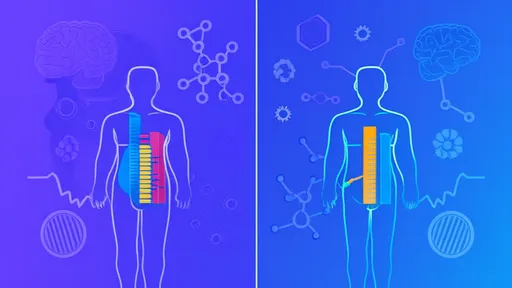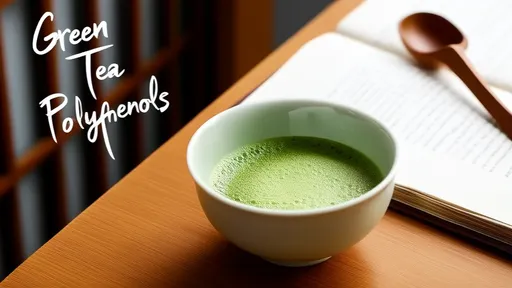Japanese researchers have uncovered promising evidence that green tea polyphenols may play a significant role in slowing cognitive decline. The study, conducted by a team of neuroscientists and nutrition experts, suggests that regular consumption of green tea could offer protective benefits for brain health, particularly in aging populations. This finding adds to a growing body of research highlighting the potential cognitive advantages of this widely consumed beverage.
The research focused on the effects of epigallocatechin gallate (EGCG), the most abundant polyphenol in green tea, known for its antioxidant and anti-inflammatory properties. Over a five-year period, the team observed a cohort of older adults who consumed varying amounts of green tea daily. Participants who drank three or more cups per day showed markedly slower rates of memory loss and cognitive impairment compared to those who drank less or none at all.
What makes this study particularly compelling is its longitudinal design and the rigorous control for confounding factors such as diet, exercise, and genetic predisposition to cognitive disorders. The researchers employed advanced neuroimaging techniques to track changes in brain structure and function, providing concrete evidence of green tea's neuroprotective effects. These findings could have significant implications for preventive strategies against age-related cognitive decline and neurodegenerative diseases like Alzheimer's.
Beyond EGCG, green tea contains a unique combination of bioactive compounds that appear to work synergistically to support brain health. L-theanine, an amino acid found almost exclusively in tea plants, has been shown to promote relaxation without drowsiness and may enhance alpha brain wave activity associated with wakeful relaxation. When combined with the modest amount of caffeine in green tea, these compounds create what researchers describe as a "calm alertness" that could benefit cognitive performance.
The mechanism by which green tea polyphenols protect the brain appears to be multifaceted. Laboratory studies indicate that EGCG can cross the blood-brain barrier, where it helps reduce oxidative stress and inflammation—two key contributors to neuronal damage. Additionally, these compounds may inhibit the formation of beta-amyloid plaques, the protein clumps characteristic of Alzheimer's disease. Animal studies have shown that green tea extracts can stimulate the growth of new neurons in the hippocampus, the brain region crucial for memory formation.
While the Japanese study focused primarily on older adults, other research suggests that green tea's cognitive benefits may extend to younger populations as well. A separate investigation found that middle-aged adults who were regular green tea drinkers performed better on tests of working memory and information processing speed. This raises intriguing possibilities about green tea's potential as a lifelong brain health supplement rather than just an intervention for age-related decline.
The cultural context of green tea consumption in Japan may also play a role in these findings. Traditional Japanese tea ceremonies emphasize mindfulness and relaxation, creating a mental environment that could independently support cognitive health. Researchers note that the psychological and social aspects of tea drinking should be considered alongside its biochemical effects when evaluating its overall impact on brain function.
Despite these promising results, experts caution against viewing green tea as a miracle cure for cognitive disorders. The study demonstrates correlation rather than definitive causation, and more clinical trials are needed to establish optimal dosages and long-term effects. Nutritionists emphasize that green tea should be part of a holistic approach to brain health that includes a balanced diet, regular exercise, mental stimulation, and proper sleep.
The practical implications of this research are significant, particularly for populations facing rising rates of dementia. With no cure currently available for Alzheimer's disease, preventive measures like dietary modifications take on greater importance. Public health officials in Japan are considering ways to incorporate these findings into national nutrition guidelines, potentially recommending green tea as part of a brain-healthy diet.
From a global perspective, this research contributes to the growing recognition of traditional dietary practices as valuable sources of preventive medicine. As Western medicine increasingly looks to Eastern traditions for insights, green tea joins a list of foods and beverages being reevaluated for their health-promoting properties. The study also highlights the importance of investigating whole foods rather than isolated compounds, as the synergistic effects of multiple nutrients may be responsible for the observed benefits.
Looking ahead, researchers plan to investigate whether specific varieties of green tea offer superior cognitive protection, and whether brewing methods affect the bioavailability of beneficial compounds. There's also interest in exploring potential interactions between green tea polyphenols and medications commonly used to treat cognitive disorders. As the global population ages, such research takes on increasing urgency in the quest to maintain cognitive function throughout the lifespan.
For now, the study provides yet another reason to appreciate this ancient beverage. Whether enjoyed for its taste, its calming ritual, or its potential health benefits, green tea continues to reveal new dimensions of value. As research progresses, it may well prove to be one of the simplest and most pleasurable ways to support brain health across the decades of life.

By /Jul 25, 2025

By /Jul 25, 2025

By /Jul 25, 2025

By /Jul 25, 2025

By /Jul 25, 2025

By /Jul 25, 2025

By /Jul 25, 2025

By /Jul 25, 2025

By /Jul 25, 2025

By /Jul 25, 2025

By /Jul 25, 2025

By /Jul 25, 2025

By /Jul 25, 2025

By /Jul 25, 2025

By /Jul 25, 2025

By /Jul 25, 2025

By /Jul 25, 2025

By /Jul 25, 2025